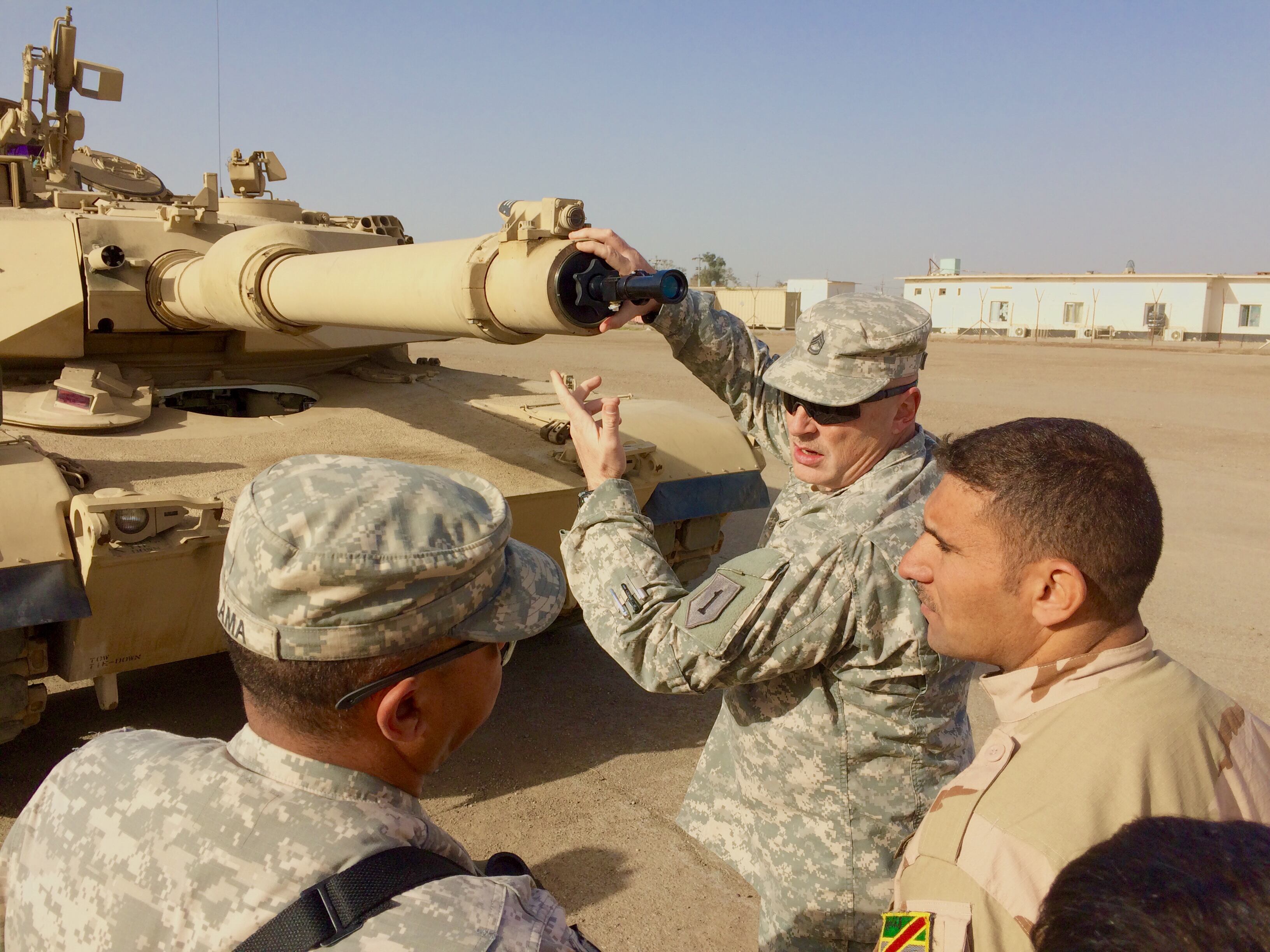"They were excited that we were back," Reynolds told a media roundtable on Thursday at the Pentagon. "You could see relief from the tactical and operational commanders. I was impressed with the leadership there, because they were fighting. You could tell they were fighting hard in the north. They were battle-hardened."
The brigade arrived in the Middle East in June as the Islamic State took control of Mosul, a key city in northern Iraq, and continued aggressive expansion that in October left it within miles of the Baghdad airport. The Iraqis — with the help of U.S. airstrikes and Shia and Kurdish militias — eventually contained the rapid growth and fought back. But the Iraqi army's reputation took major blows amid reports that some units ditched their weapons and fled the onslaught as "Daesh," the group's acronym in Arabic, gobbled up territory in Syria and Iraq.
Telltale signs of the fierce fighting, Reynolds said, were seen in the eyes of leaders, who were sustaining heavy losses in men and equipment.
Reynolds said a newfound sense of urgency and focus struck him as he worked with leaders through discussions of both general and specific tactics and strategies. He also said honor and pride factored into the mentality after a string of difficult losses during Islamic State's rise.
"I think there is more focus and more energy from everybody in trying to solve this problem," said Reynolds, who also noted that, despite desertions, many have also been continuously fighting Islamic State. "They're doing the ground fighting. There's nobody else doing the ground fighting. There's no U.S. forces deploying or doing raids."
U.S. soldiers offered a professionalism and set of values, Reynolds said.
As an example Reynolds told the story of a recruit who approached him and confessed he hated Americans. Reynolds had a quick reply: "I don't care, as long as you hate Daesh more." Reynolds said he personally participated in a PT training session with the recruits, the American-hater included.

Sgt. 1st Class Matt Miller, an armor trainer with 1st Armored Brigade Combat Team, 1st Infantry Division, explains through an interpreter the fundamentals of bore-sighting the main gun on an M1 tank.
Photo Credit: Master Sgt. Mike Lavigne/Army
"At the end of the two-hour training cycle, the same guy comes up to me. Now he realizes who I am, the brigade commander, and he says I want you to fight with us. I trust you," he said. "The next 2-3 days, the Iraqi leadership, their officers came out and did PT."
When Reynold's soldiers were not training Iraqis and guarding critical infrastructure and State Department officials in Iraq, they remained back in Kuwait, in a very different type of deployment environment than Reynolds was used to. There was more opportunity for cultural immersion, Reynolds said.
Kuwaiti partners invited soldiers into their homes for dinners and birthday parties, which he called "pretty neat." While it wasn't all sipping tea with locals and visiting the beach, soldiers did get the chance to do just that.
"Every single soldier was able to get off the camp at Camp Buerhing, and go into downtown Kuwait," Reynolds said. "I've been deployed 13 times, and this was the first time I was able to go downtown into a mall."





